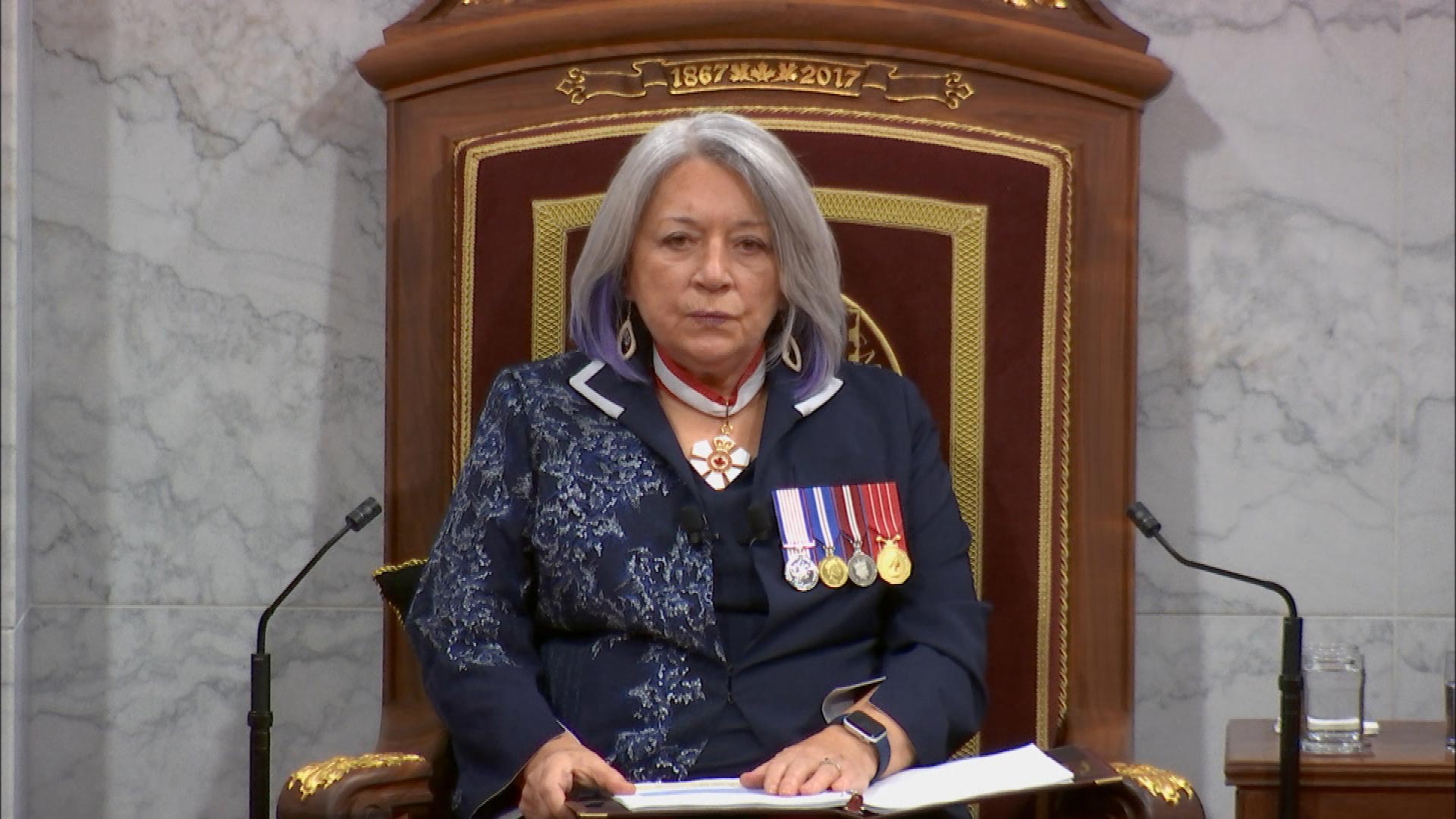Prime Minister Justin Trudeau has laid out his legislative priorities as Parliament resumes with the Liberal minority government in charge again—and reconciliation is chief among them.
Gov. Gen. Mary Simon delivered her historic first throne speech as the queen’s representative in Canada on Tuesday. Simon, who is Inuk from Kuujjuaq in northern Quebec, is the first Indigenous person from any nation to hold the office.
“In each of your own ridings, I encourage you to seek out the truth and to learn about the lived realities in First Nations, Inuit and Métis communities,” urged Simon as she welcomed new parliamentarians into their roles.
While delivered by the governor general, the throne speech is written by the prime minister’s office and outlines the government’s agenda. It must be delivered following an election or prorogation of Parliament.
The House of Commons broke for the summer in late June, not long after a Secwepemc community announced it had confirmed the existence of more than 200 unmarked graves at a former residential school near Kamloops, B.C.
And that’s where the throne speech began.
“The discovery of unmarked graves of children who died in the residential school system shows how the actions of governments and institutions of the past have devastated Indigenous Peoples and continue to impact them today,” Simon read in French. “We cannot hide from these discoveries.”
Indigenous people are reclaiming history, stories, culture and language through action, Simon continued, adding that non-Indigenous people are beginning to come to terms with reality.
“We must turn the guilt we carry into action,” she said, “action on reconciliation.”

On that front, the Liberals promised to create a national monument to honour residential school survivors and appoint a special interlocutor to seek justice for them.
The speech pledged cash for an Indigenous mental wellness strategy and reiterated a standing promise to compensate victims of the “wilfully and recklessly” underfunded First Nations child welfare system, while also reforming the program.
Simon read out similar reiterations of Trudeau’s pledges to lift on-reserve drinking water advisories, respond to the National Inquiry into Missing and Murdered Indigenous Women and Girls (MMIWG), and harmonize federal laws with the UN Declaration on the Rights of Indigenous Peoples.
Trudeau sailed into power in 2015 promising to renew relationships with First Nations, Inuit and Métis. Six years later, his government faces erosion of trust and optimism say some Indigenous analysts, while others remain steadfastly in support of his platform.
The speech comes on the heels of militarized raids on resistance camps and blockades mounted by Wet’suwet’en hereditary chiefs and supporters who oppose construction of a natural gas pipeline through their unceded territory. The raids, just as they did in 2020, sparked several solidarity demonstrations.
The Liberals failed to deliver their hallmark promise to lift all long-term drinking water advisories on reserves by March 2021 and refuse to offer a new deadline, though documents written by officials at Indigenous Services Canada said it wouldn’t be until 2023.
The government also missed its deadline to deliver an action plan in response to the MMIWG inquiry. When it was released, the plan was ill received by the Native Women’s Association of Canada.
And, despite promising to compensate, the Liberals went to Federal Court seeking to quash a human rights tribunal ruling that ordered them to pay $40,000 to each victim of the discriminatory child welfare system and their families.
Trudeau’s Justice Department lost that case but appealed the decision at the 11th hour. Ministers billed the filing as a “protective appeal,” promising to negotiate a settlement by December 2021 before litigating.
That deadline is fast approaching.
The speech contained few surprises and was thin on specifics. The other parts of the throne speech are consistent with the Liberal election platform.
These include finishing the fight against COVID-19 and rebuilding from an economic deficit crater not seen since the Second World War. Affordable housing, developing a national $10-a-day child care system, and acting on the climate crisis round out the agenda.
The Liberals pledged to develop a national adaptation strategy and better prepare for increasingly severe extreme weather events like the catastrophic mudslides and floods that recently ravaged B.C.
“The government will be there to build back in communities devastated by these events,” read Simon.
The government has also pledged to re-introduce a bill that will roll back mandatory minimum sentencing laws in a bid to address the overrepresentation of Indigenous people in the justice system.
The Liberals are also eyeing 2022 to introduce new Indigenous health legislation.
This is Trudeau’s second consecutive minority, which means the Liberals need support from at least one party to pass legislation.
—With files from the Canadian Press









